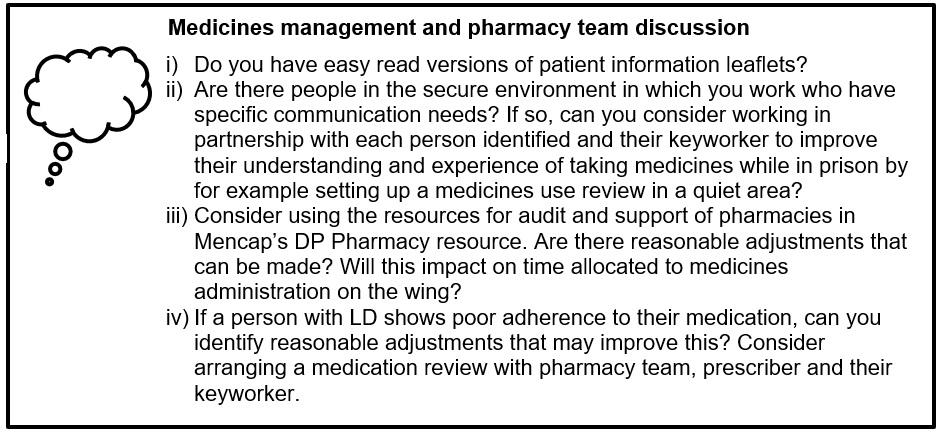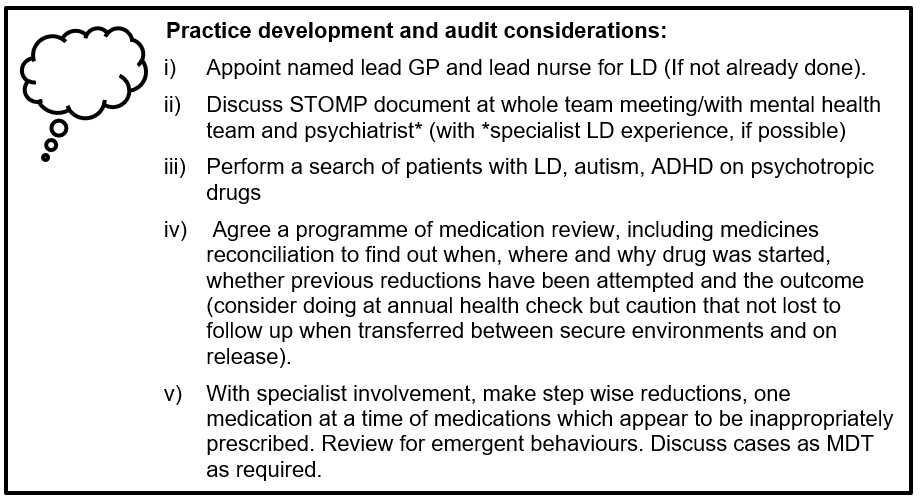Resources for Secure Environments
Providing healthcare in secure environments such as prisons, secure hospitals, young offender institutions and immigration removal centres presents unique challenges for GPs and primary care professional.
Learning and Intellectual Disabilities in Secure Environments
Medication and learning disabilities
PHE: Pharmacy and people with learning disabilities: making reasonable adjustments to services (2017) PHE publications gateway number 2017086HTML
This guidance is useful for pharmacy teams working on site in secure environments and for community pharmacy providers contracted to provide services in secure environments. It includes summarised points for consideration including adjustments to make that will enhance management and monitoring of medicines for people with LD, links to resources provided by RPS and CPPE and case studies with examples of reasonable adjustments.

NHS England (2017) Stopping over-medication of people with a learning disability, autism or both (STOMP)
This publication was written to highlight the importance of identifying and reviewing people with learning disability or autism who are prescribed antipsychotic medication in order to reduce and stop inappropriate prescribing for challenging behaviour. It provides an algorithm for review and reduction of antipsychotics, suggestions for practices, examples of practice-wide approaches and individual case studies.
